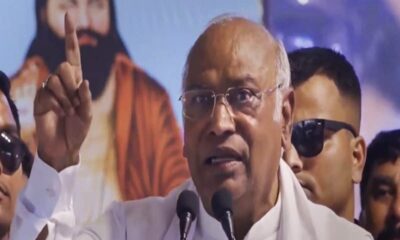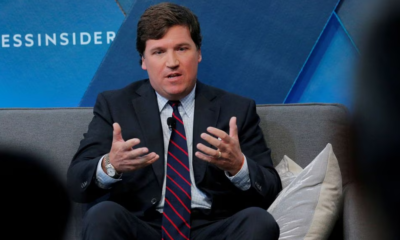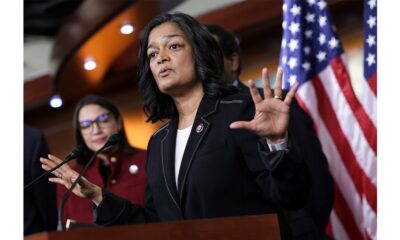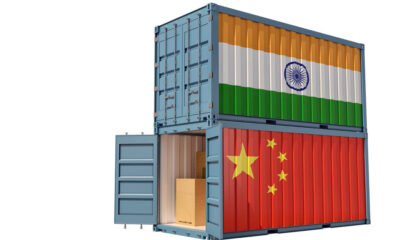Source: EPA. The world has moved on from Covid, except for China, where many cities and towns are still closed overnight. It’s unlikely that this will change, as President Xi Jinping said in his opening speech at Sunday’s Communist Party Congress. The world and China were hoping for some relaxation. But Mr Xi is set to be given a historic third term as Party leader and said that the government would not “flare” in its commitment of zero cases. Most accounts say China’s lockdowns are incessant, unpredictable, and horrible because of Mr Xi. They have caused food shortages, hampered healthcare access, hurt the economy, and even sparked protests. But Beijing has clung tightly to zero-Covid which has become Mr Xi’s rule and the authoritarian bureaucracy at its disposal like almost every other policy. Are you confused or convinced? BBC reported that China has locked down 152 prefecture level cities since March. This affects a population of over 280 million. As the Party Congress approached, however, 114 of these were already locked down.
This visualisation may not be possible on your device
Beijing is the only major city that has escaped a complete lockdown. Half-jokingly, residents joke that Beijing has managed to lock down the rest of China when necessary. On Thursday, however, some Beijing shopping centers and housing estates were locked down following a sharp rise in cases. The fourth phase of China’s Covid control measures began in March. Comparing lockdowns across phases is difficult because official language changes can skew definitions and the corresponding data. China’s bureaucrats certainly have come up with innovative ways to describe lockdowns. These measures were so controversial and feared that it was difficult to understand official-speak. They used terms like “stasis management”, or “at-home stillness” to describe the measures. Or, to be more precise, “stillness throughout all of the region” or “stop any unnecessary movement”. Then came “temporary social control”, which authorities claimed was not a “lockdown”, but a reduced movement that in some way would not affect “normal order of production” and “normal life”. Yet, the public was told not to leave the premises unless absolutely necessary. Another new term was “Enclosed Management” in the southern province Guangdong. It refers to a village, district, or residential compound that is enclosed with checkpoints at entry and exit. Passes are required to allow vehicles and people to enter and exit the area. It is not permitted to enter the area if you don’t live or work there. Residents were informed that it is not a lockdown. Track-and-trace methods began to get annoying so officials devised an alternative: “temporal & spatial overlapper”. This phrase, which is sci-fi inspired, refers to someone whose coordinates were tracked by their phone and has overlapped in space and time with another Covid-positive. The governor of Dancheng County, central Henan province, warned people that anyone returning home with malicious intent would be quarantined and then detained. China is now in the “scientific, precise, dynamic zero” phase. No one seems to know what that means. It is meant to be one step above the previous “dynamic zero” policy. Dynamic is because it’s not about locking down entire towns, but rather about reacting more dynamically to changing circumstances. It looks and feels like an endless series of lockdowns on the ground. The year began with the closure of Xi’an, a tourist hub that is home to 13 millions, for a month. In March, Shanghai was put under lockdown. Although it was supposed to last for less than a week the lockdown lasted two months. The 25 million residents of Shanghai remained home. Residents in Chengdu were trapped in their homes after an earthquake in September. Rescue workers had to perform a Covid test elsewhere before they could save anyone. In September, hundreds of thousands of people in two cities of Shanxi were locked down without any reports. Officials said that it was to “contain risk from the outside”. A local party leader promised to protect the area “to welcome 20th Party Congress with outstanding results.” Pleasing Mr Xi Beijing repeatedly insists that “dynamic zero” does not mean local authorities can resort to a “one-size fits all” approach of mass testing and full lockdowns. However, there seems to be a disconnect between this diktat from what’s actually happening across China’s cities and towns. Many lockdowns that were announced by local officials in Beijing in March and April were missing, including one in Shenzhen, which held 17 million people in their homes for a week. It is possible that central government officials didn’t want to encourage total lockdowns, but instead wanted to draw attention to them. However, local officials preferred to use them quickly to control outbreaks. Experts also believe that China’s bureaucracy has become more centralised under Mr Xi. This is a reverse of the decentralization that occurred after China introduced its economic reforms. This means that Mr Xi’s policies are being enforced by bureaucrats with zeal. Yuen Yuen Ang, a political science associate professor from the University of Michigan, says that Xi’s appetite to adapt governance and his relationship to local authorities varies depending on issue areas. “Local governments have little to no flexibility when it comes to his signature policies, which he declared had no room for ‘wavering’. They must implement Xi’s personal edicts enthusiastically if they want to survive and prosper, even if it is detrimental. “From April, the lockdown totals in Beijing’s announcements matched the ones in local notices – at the same time that Mr Xi reaffirmed support for a zero-Covid strategy. As the year progressed, more cities abandoned meticulous track-and trace and entered full lockdowns, even though only a few cases were reported. Wu Guoguang, a Stanford University senior China scholar, said that local officials are motivated by both fear of punishment as well as a desire to show loyalty to Mr Xi. He was once a member the Chinese Communist Party’s policy committee on political reform. Mr Wu says that when it comes to proving their loyalty, there is an undeclared competition between local leaders, which gives a huge momentum for their seemingly unreasonable measures. Experts agree that it is all political. Experts also say that lockdowns spread rapidly as congress neared. William Hurst, a Cambridge University professor of Chinese development, says that “Covid” is politically in China. The carefully planned once-in-five years party congress carries special importance this year. If it goes according to Mr Xi’s plan, he will become the first leader since Mao Zedong, a Communist-era leader, to serve as party boss for a second term. A Covid outbreak is the worst thing that could happen to the party, especially as Mr Xi and his bureaucrats insist that “dynamic zero” has been a success that has saved lives. It has prevented major outbreaks like the one in Shanghai earlier in the year, according to Benjamin Cowling, chair of epidemiology, University of Hong Kong. He adds that it is not certain if the cost was justified and if this approach will be sustainable due to its huge economic costs. While locking down millions of people may help keep national case counts low, the fact that this was done while the rest of the world is opening up shows how unprepared China is for a post Covid world. Public health experts claim that Beijing would have pursued a more aggressive vaccine policy if zero-Covid were really about saving lives. China has refused to promote vaccination or import vaccines despite evidence that its homemade jabs are not as effective. The virus has also claimed the lives of unvaccinated elderly people who Beijing claims it is trying to protect with zero Covid. Experts say that zero-Covid has managed to project a veneer and stability while the year’s most important political event unfolds. Prof Hurst anticipates that the intermittent lockdowns will last at least until March next, when China’s equivalent to parliament convenes in order to elect Mr Xi to be president. Prof Hurst says that lockdowns are used to prevent Covid outbreaks spreading. “But they also exercise incredibly strict social control.”


 World News2 years ago
World News2 years ago
 World News2 years ago
World News2 years ago
 World News2 years ago
World News2 years ago
 World News2 years ago
World News2 years ago
 World News2 years ago
World News2 years ago



























